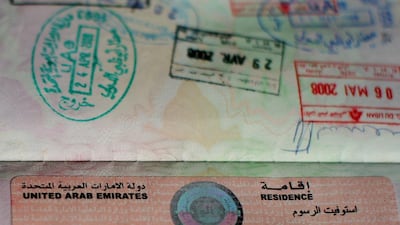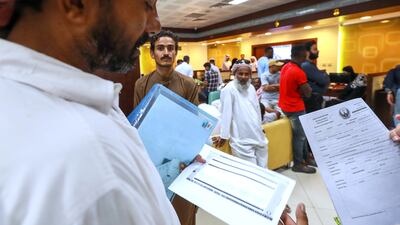We live in a highly globalised world in which the flow of what is often called “human capital” has become indispensable to the international economy. However, “human capital” is a somewhat impersonal way of describing what is really millions of men, women and families moving to other countries for a better life.
Many make this move in an organised way – arranging a work, study or visit visa that will allow them to reside overseas and take up a job offer, get an education or be reunited with family members. However, moving abroad is not without its pitfalls and even the best-laid plans can come unstuck. Losing a job, suffering from sudden ill-health or going through a marriage break-up can all play havoc with people’s lives – and their visa status.
The UAE is a country that benefits from and values the contributions of the millions who live and work here legally. Nevertheless, some overstay their permits. There is a variety of reasons for this. Some people can find themselves in between jobs. Others can fall prey to unscrupulous recruiters - Ishtiyak Raziq, former president of Sahana, a Sri Lankan welfare association, recently told The National about those who have been “duped by agents who promised higher paying jobs and they end up with nothing and they overstay”.

In some cases, people want to go home after the residency permit lapses but cannot afford to pay the fines they have incurred for overstaying.
Such challenges are not unique to the UAE. A November 2023 report prepared for the US Congress said an estimated 42 per cent of the approximately 11 million unauthorised population living in America illegally entered the country legally but overstayed their visa. Similarly, the Migration Observatory at the University of Oxford has previously said that those who overstay their visas are “a key source of the UK’s irregular migrant population”. In the EU, the European Council said in March that “overstays by visa-free travellers, for instance, lead to an increase in irregular migration” and an EUObserver report from June claimed that the EU “estimates that about half of all irregular migrants within the bloc’s 27 member states result from visa overstays”.
As a country whose policy has been one of open borders for employees from the world over, the UAE has a humane approach towards those whose visas have expired. Recent news that the authorities have announced a two-month grace period for overstayers to regularise their status or leave without paying fines is a welcome demonstration of this approach.
From September 1, those without valid papers will be offered assistance with getting their lives back on track. It is right and responsible for the government to do this because, aside from fear and isolation that can come from living abroad illegally, there is no advantage to having an informal labour market. On the contrary, an amnesty can help to regularise the workforce and contribute to economic growth. Research published in 2020 by the US-based Cato Institute think tank found that providing legal paths for migrants to resolve their immigration status “would help provide for the future prosperity of the United States”, adding that governments “cannot regulate a black market of illegal immigrants, but it can regulate legal immigrants”.
The wisdom of a considered visa amnesty has been proven in the UAE before – the country has run amnesties before in 2007, 2013 and 2018. Saudi Arabia and Oman have also offered their own visa amnesties.

The UAE amnesty in 2018 led to tens of thousands of people without legal documentation coming forward to ask for new visas or to return to their country, with overstay fines waived in the process. At the time, The National reported that the Bangladeshi and Ethiopian missions in the UAE recorded the highest numbers of people who applied for amnesty, with just over 25,000 Ethiopians obtaining new passports to legalise their visas during the amnesty period while about 4,500 left the country.
The considered approach taken by the UAE on this issue contrasts with the hostility towards migrants that is unfortunately gaining more political traction in certain other advanced countries, particularly in the West. In reality, operating a realistic but compassionate immigration system that offers people a path out of living in the shadows is not just humane – it is common sense.


